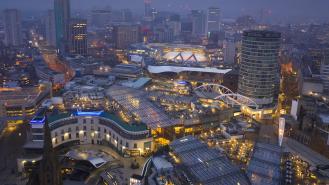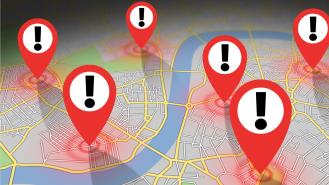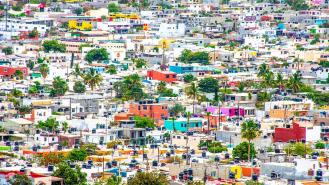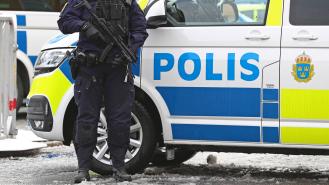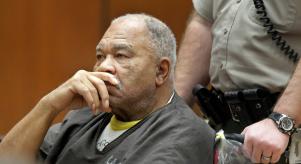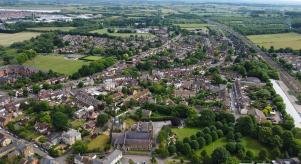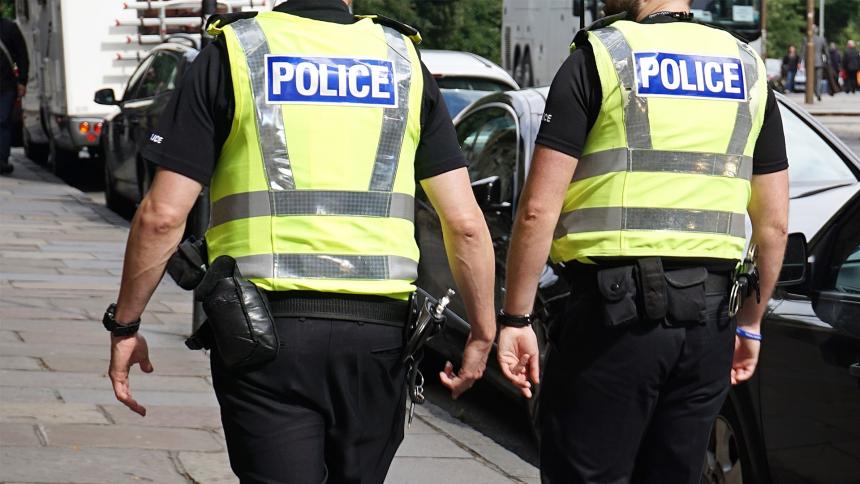
How UK crime rates compare to other countries?
Do we live in a violent society? Is crime rife here in Britain...?
These are pretty tricky questions to answer quickly and objectively.
Some folk will tell you that they’ve never felt more scared to step outside their front door. They’ll point to shocking tabloid headlines about the recent upturn in urban stabbings, a 19% overall increase in violent crime, ongoing police budget cuts and profess that we live in an apocalyptic every-man-for-himself Mad Max-style society.
But is that the reality of the UK today? Are we really becoming an increasingly violent and criminal nation? Clearly, context is key to answering questions as weighty as these. Anecdotal evidence isn’t quite going to cut it. We need to expand our view and look at the issue from a global perspective.
Worldwide crime statistics can be difficult to collect and analyse. The closest we can get to a reliable set of figures comes in the shape of the global homicide rate, as compiled by The Small Arms Survey (a project by the Graduate Institute of International and Development Studies in Geneva). It shows that murder rates and ‘death by lethal violence’ are up across the world for the first time in over a decade.
385,000 people were killed in homicides across the world back in 2016, while some 560,000 lives were lost as a direct result of lethal violence. That's more than one person dead every minute of every hour of every day of the year.
Looking at the figures and how they break down by country, something quickly becomes clear… Compared to a lot of other nations, Britain is a really rather safe place to live. A crime-free haven, almost.
As we’ve mentioned, accurate, in-depth and up-to-date data on every country's crime rates is all but impossible to find, collate and interpret. However, the crowdsourced global database Numbeo is a pretty good resource for crime levels across the world. Their data on national crime rates has been used as a source by many major newspapers and publications globally, including Forbes, The New York Times, The Economist, the BBC and The Telegraph.
According to Numbeo, these are the top five most crime-addled countries on the planet in 2019:
Unsurprisingly, war ravages a country. Afghanistan, like most countries engaged in conflict, is in utter turmoil in almost all regards. War not only puts civilians at risk of injury and death, it also invariably leads to varying degrees of lawlessness.
The war-torn and bomb-ravaged Afghan capital Kabul is on its knees, as you might expect. But it’s not just fighting and suicide bombers that pose a significant threat to Afghan citizens’ lives. Gun-toting mobs of criminals do too.
Security forces in the country are attempting to fight back, but at the moment the criminals have the upper hand, pushing their country up to being the fifth worst for crime in the entire world.

4. South Africa
Kidnappings, assaults, carjackings, robberies, farm attacks, hijackings, rapes, murders... South Africa has always had a reputation as a violent place where criminality is rife. And not without reason. Many assumed that the end to Apartheid may have improved things, but there's been little to no evidence of that as yet.
South Africa still suffers from widespread poverty, unemployment, inequality, marginalisation and social exclusion and they've never quite managed to shake a culture of violence from their society.
There are nine million fewer people living there than in the UK. Yet an average of 50 people are murdered in the country every single day. In Britain, there are just two murders every 24 hours.
3. Honduras
When you’ve got a population smaller than that of Belarus, 20 murders a day is a lot. And the Central American country of Honduras knows it has a problem.
A great deal of the crime in the country stems from drug trafficking. Honduras is a victim of its own geography. As a transit point for a significant amount of the drugs going from South to North America, it sees huge gang violence, especially with the MS-13, Mara Salvatrucha, Barrio 18 and the 18th Street Gang at each other's throats.
Recent signs are good however and crime appears to be dropping there. But while it's not at its all-time high of 2012 (when the country had the highest murder rate in the world), Honduras is still rife with criminal activity and a highly dangerous place to live.
2. Papua New Guinea
Unlike the others in this top five, the crime in the southwestern Pacific nation of Papua New Guinea is rarely organised. But it’s no less serious. Tremendously high unemployment (around 60%) has led to citizens resorting to crime to survive.
Muggings, robberies and hijackings are frequent and can be violent, especially when ‘bush knives’ (machetes) are involved, as they often are.
It’s no over-exaggeration to say that western tourists put their lives very much at risk with a visit to the capital, Port Moresby. Not only are they - and the country’s residents - at risk from desperate criminals, there’s also civil unrest after a recent election proved controversial. Plus there’s the ongoing concern of violent tribal clashes throughout the country.
1. Venezuela
Political turmoil and unrest never make for a stable environment. But when it occurs in a South American country already beset by issues related to drug trafficking, crime rates are naturally going to be affected. That’s very much the case with the world’s most violent and criminal country, Venezuela.
A transit country for cocaine in the same way Honduras is, to say that organised crime is rife here would be kind. In a collapsed economy with soaring hyperinflation, crime is almost at a kind of ground zero, though. The police barely even keep records anymore and weirder still… The population is now so bankrupt, there’s virtually no money to steal.
While Venezuela currently tops the ‘highest crime rate’ list, don’t expect it to for very long. With less money in people’s wallets and in bank vaults, criminal activity is dropping. After all, you can’t steal what isn’t there, can you?
Crime in Europe
If we look a little closer to home for some sort of perspective as to how bad crime is in the UK, we see that Numbeo’s data places us 8th out of 39 in theirEuropean Crime Index. We’re fractionally above Belgium and just behind Bosnia and Ireland. According to their data, Switzerland, Austria and Estonia rank as the safest countries in Europe, with France and Ukraine behind only Sweden as the least safe.
‘Sweden?!’ You might ask. ‘Isn’t the land of ABBA and Ikea a progressive, peaceful and liberal country?’ Well, yes - on the whole. But recent years have seen surges in all sorts of violent crimes including assaults, rapes and murders. Bizarrely, the number of incidents involving grenades is at a worrying high.
Crime in Sweden is a hot button issue and a political hot potato. Some point to an increase in immigration to explain the rise, others point to a new way of recording figures. While some Swedes put the worrying trend down to an overall rise in violence and criminality across the world. As is so often the case in such matters, few can agree on a shared root cause.
How dangerous is Britain compared to other countries?
The United Nations Office on Drugs and Crime's 'intentional homicide rate' gives a figure based on deaths per year per 100,000 inhabitants. Of the 220 nations assessed back in 2016, Britain ranks 174th with a rate of 1.20 murders per 100,000 people. At the top of the list? El Salvador, with an incredible 82.84 murders per 100k deaths. Central and South America - as well as nations from the Caribbean - dominate the top 20 countries.
Let’s return to Numbeo and their Crime Index briefly. They assign the UK an index figure of 42.72. For context on a European level, the lowest-ranked country - Estonia - has 20.80. While the ‘most criminal’ nation, Sweden, has an index figure of 49.35.
Of the 188 countries assigned a ranking, Britain came 62nd. That just about puts us in the top third for crime. It’s not ideal and higher than anyone living here would like, but compare us to the truly violent nations on Earth and a much more positive picture is painted.
So things aren’t quite as bad as they might be. How much is that a consolation to us as we witness and experience living somewhere that’s becoming quantifiably more violent and more criminal? It depends on how you look at it.
We can feel grateful that we’re not trying to live our lives dodging bullets in a Caracas slum. But to those affected by crime and violence in our society, they’ll want to know why more isn’t being done to make the UK safer.
